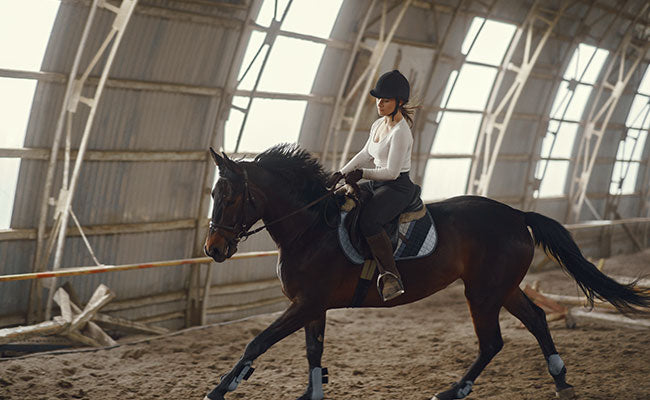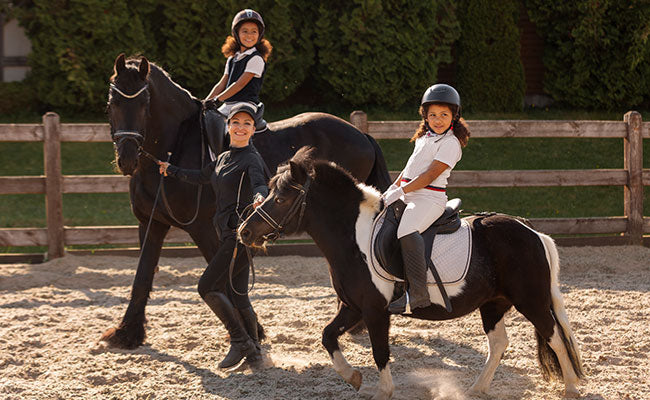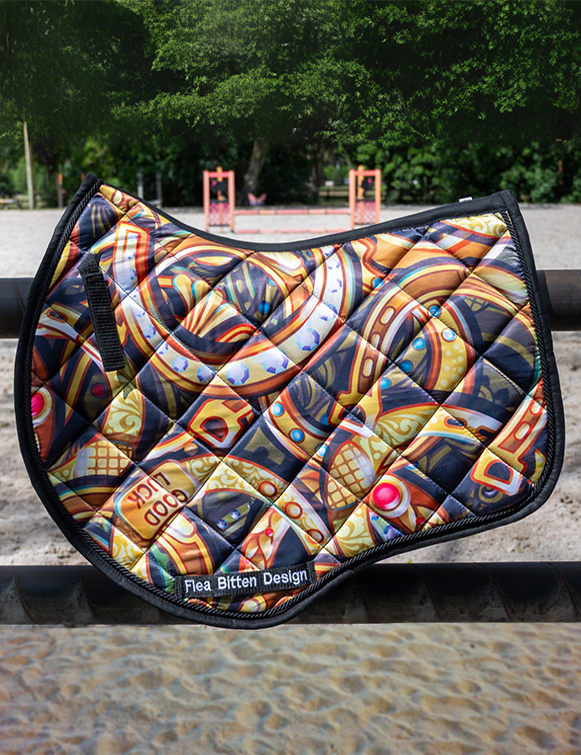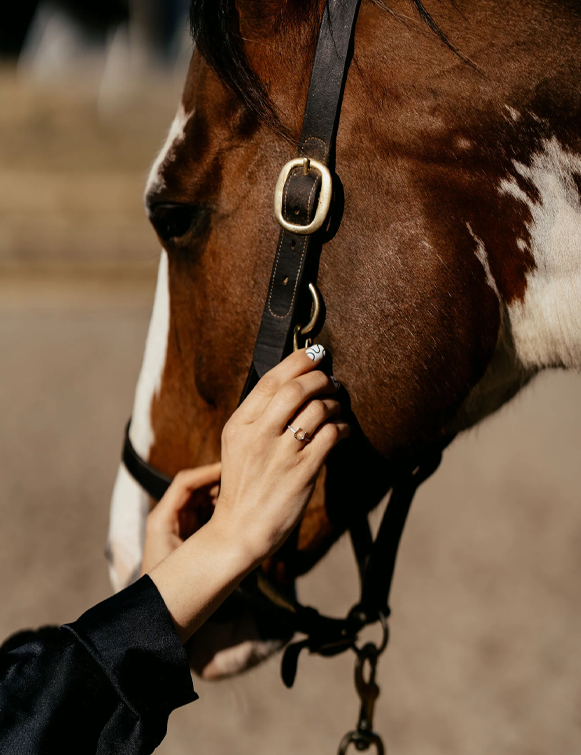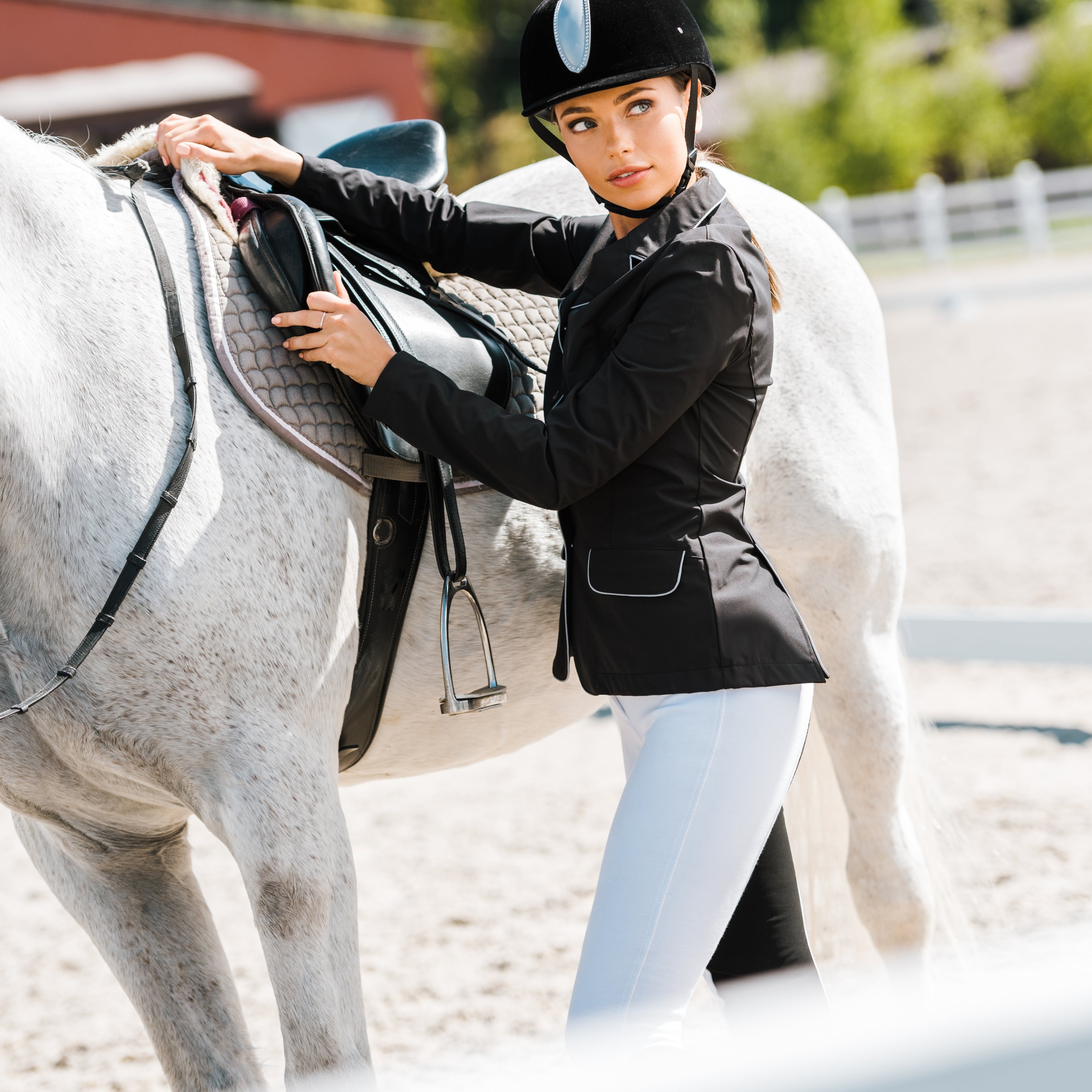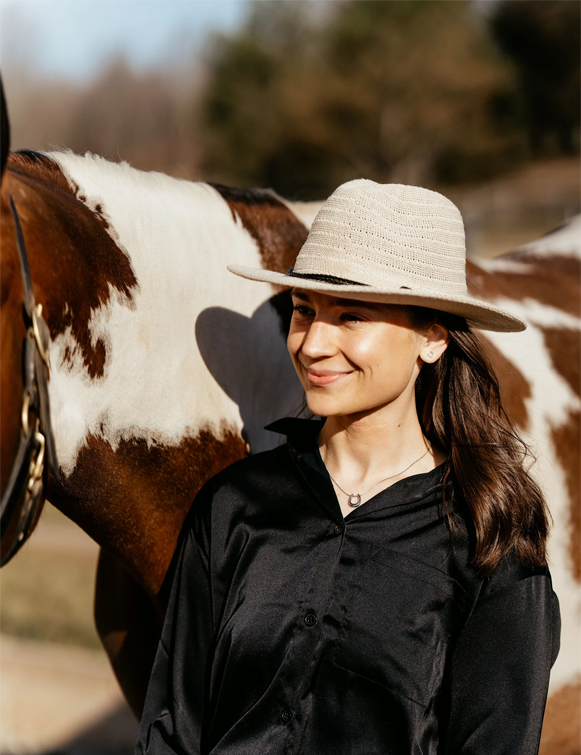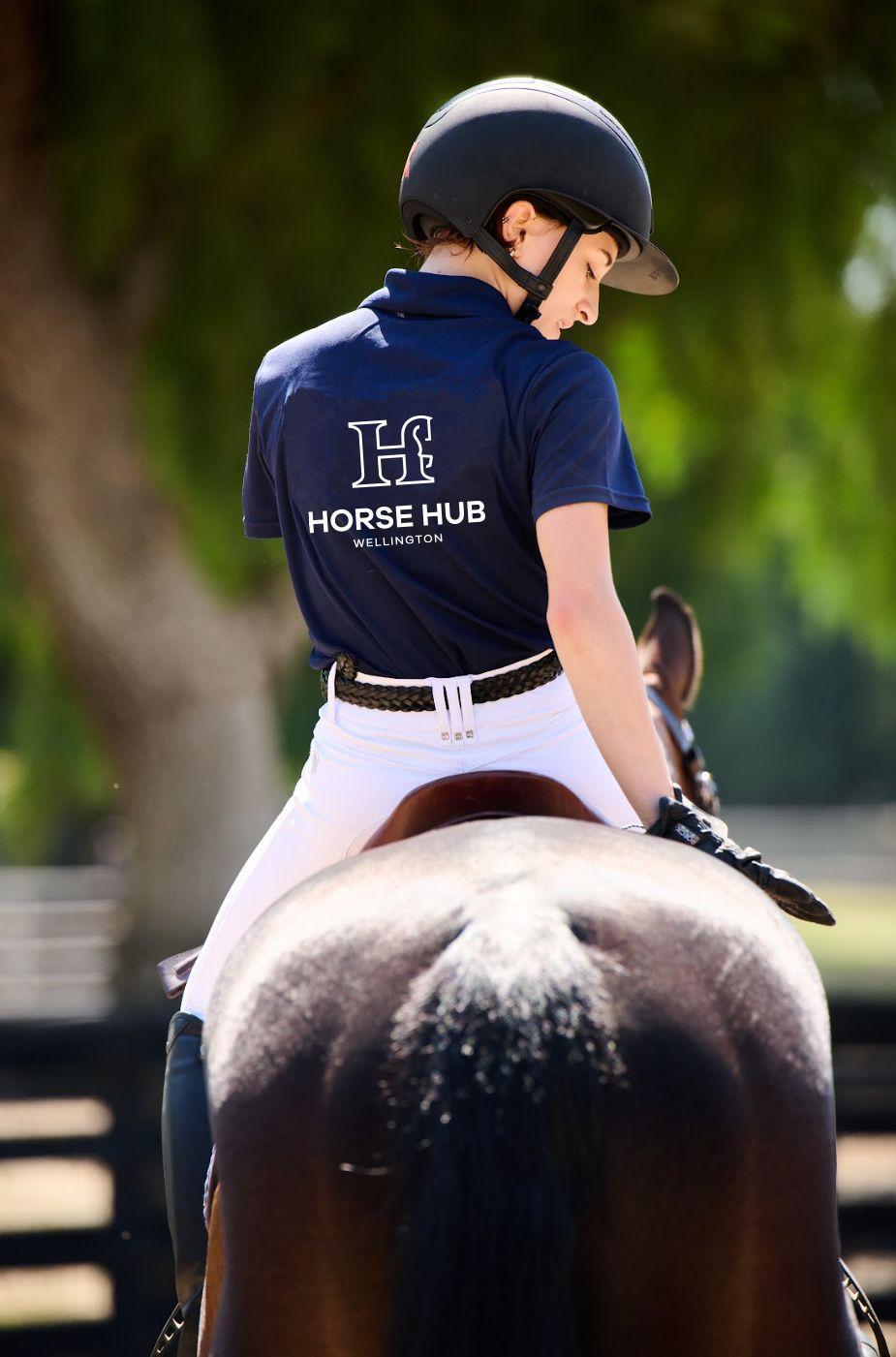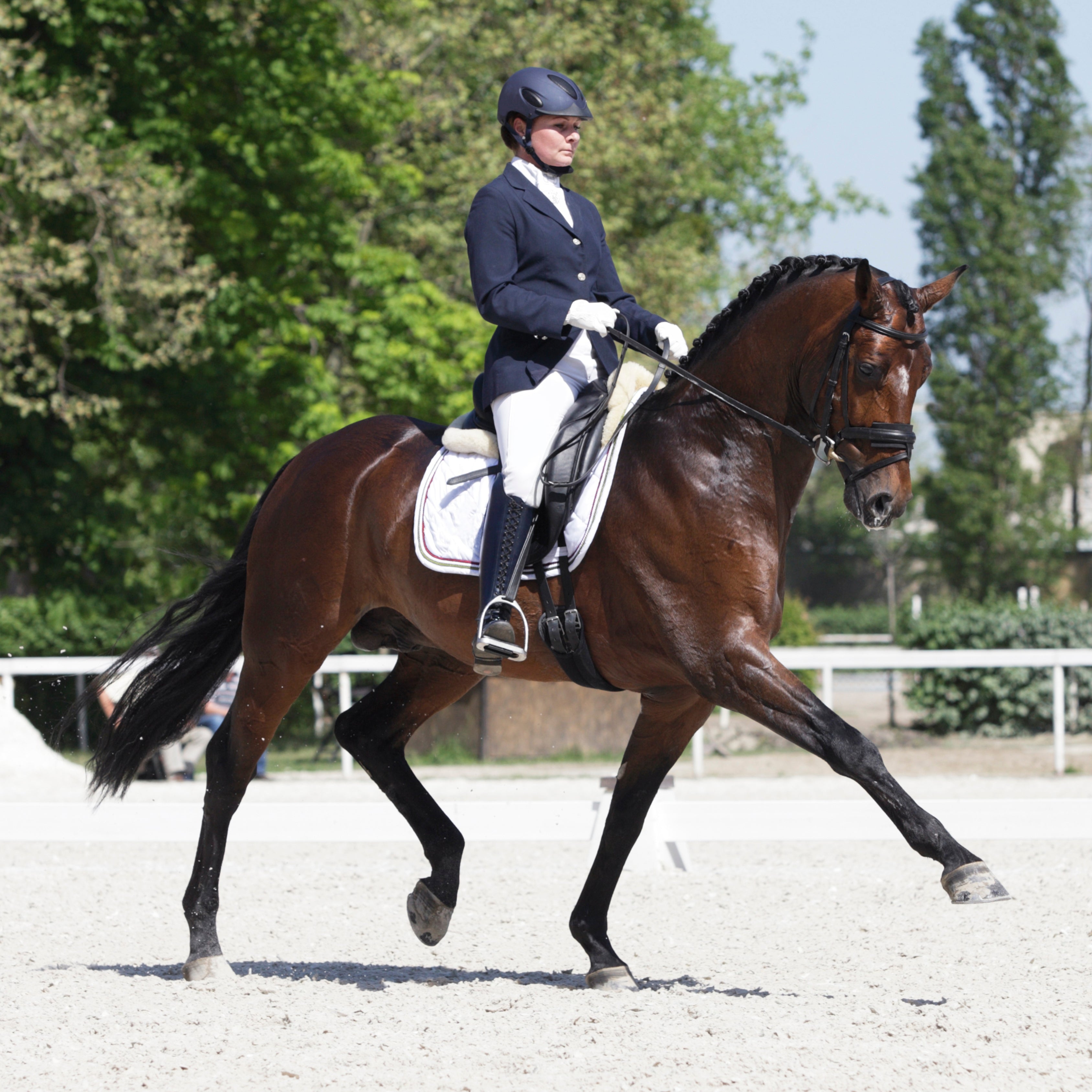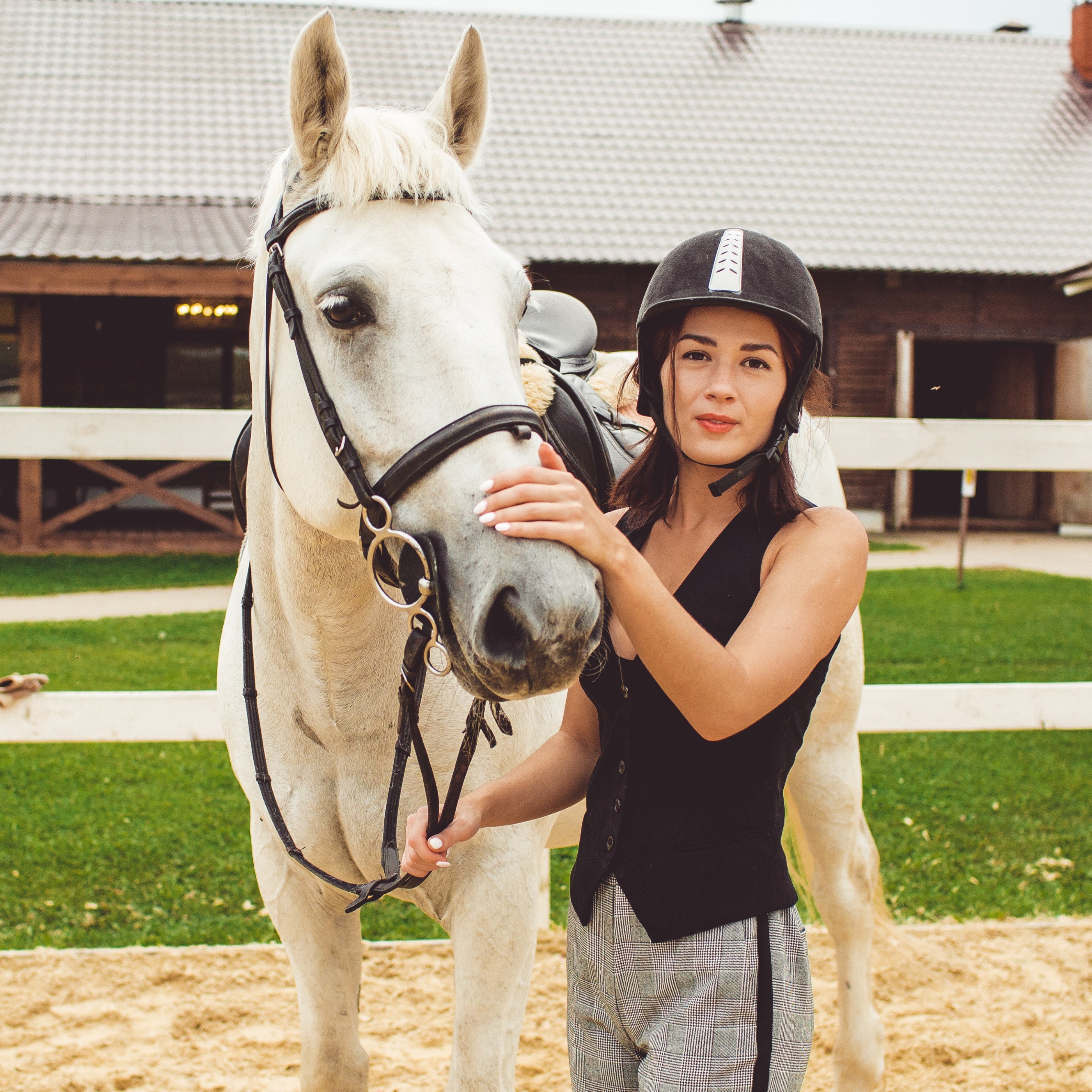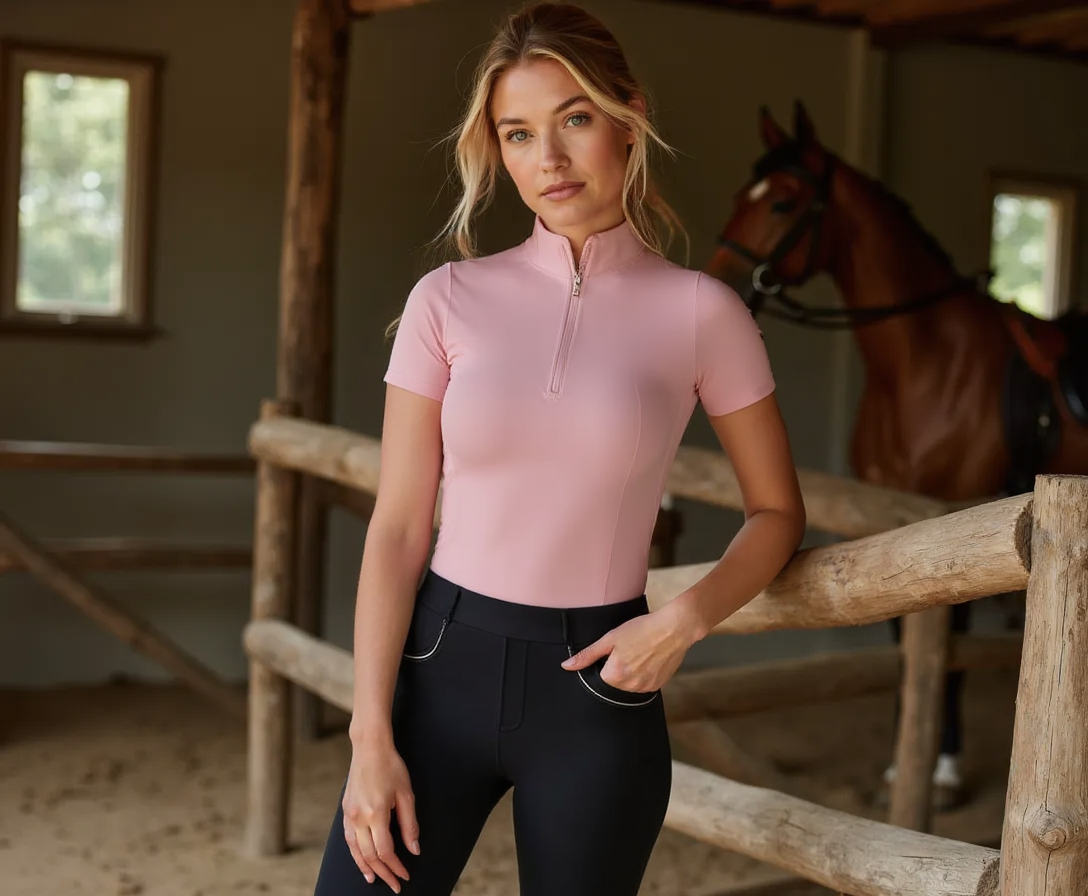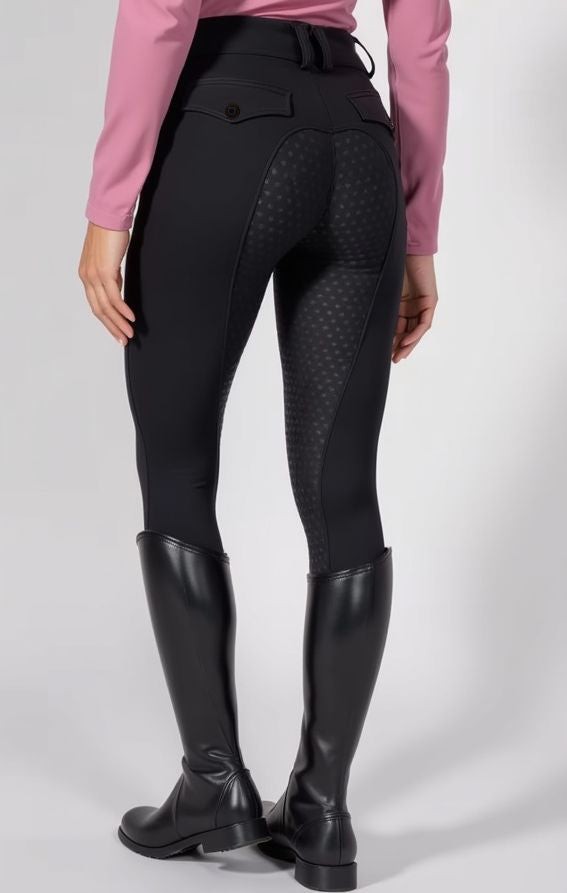
Why Horses Are Good for Mental Health
In a world that’s constantly buzzing with digital noise, relentless deadlines, and the pressure to always be “on,” many of us find ourselves feeling disconnected — not only from others, but from ourselves. Modern life demands our attention at every turn, often leaving little space for stillness, reflection, or genuine connection. In this whirlwind of technology and to-do lists, it’s no surprise that so many seek refuge in nature, craving something more grounding, more real.
Enter the horse — a creature of grace, power, and astonishing emotional intelligence. Horses don’t ask for perfection. They don’t require words. With their quiet strength and instinctive sensitivity, they offer something profoundly rare in today’s world: a nonjudgmental presence, an invitation to be fully in the moment. Whether you’re brushing a mane, walking beside them in a pasture, or moving as one in the arena, horses have an extraordinary ability to calm the mind, steady the heart, and reconnect us to a deeper sense of self.

1. Instinctive Empaths: Horses Feel What You Feel
Horses are more than just observant — they are deeply intuitive creatures, with an emotional sensitivity that borders on the extraordinary. As prey animals, their very survival depends on their ability to sense subtle changes in energy, movement, and mood in both their environment and the beings around them. Over thousands of years, this instinct has evolved into something remarkable: a capacity to read and respond to human emotion with stunning accuracy.
When you approach a horse, you're not just seen — you're felt. Horses are known to synchronize with a person’s heartbeat and detect even the subtlest shifts in breathing, tension, and body language. They don’t judge or rationalize; they simply respond. If you’re anxious, they may grow uneasy. If you’re calm and centered, they’ll soften. Their reactions become a mirror to our inner world, offering gentle feedback that no words could convey.
For individuals struggling with anxiety, depression, emotional overwhelm, or trauma, this kind of connection is profoundly healing. A horse doesn’t ask you to explain yourself. It simply meets you where you are — with patience, presence, and authenticity. In return, it invites you to do the same.
The experience of being “seen” and understood on such a primal level fosters a sense of emotional safety. This is why many describe time with horses as meditative or even sacred. It’s not just about riding — it’s about being. Grooming, walking, or simply standing with a horse can restore mindfulness, calm, and a deeper awareness of your own emotional landscape.
At My Horse Hub, we understand this bond intimately. That’s why we create equestrian pieces that honor not just the physical connection between horse and rider — but the unspoken emotional dialogue that unfolds with every shared moment.
2. A Natural Stress Reliever
In the relentless pace of modern life, where stress has become a near-constant companion, horses offer a rare and powerful antidote — presence. Scientific studies continue to confirm what horse lovers have long known in their hearts: spending time with horses can significantly lower cortisol levels, the hormone most commonly associated with stress, while simultaneously boosting endorphins and oxytocin — the brain’s natural feel-good chemicals.
Unlike screen time or shallow distractions, the experience of being around a horse is fully immersive. Whether you’re brushing their coat, cleaning hooves, or simply breathing beside them in the stall, your senses are activated — the earthy scent of hay, the soft sound of rhythmic chewing, the warmth of their body, the gentle cadence of hooves on soft ground. These small, sensory-rich rituals pull us out of our heads and into the present moment, quieting the mental noise and grounding us in the here and now.
The barn, for many equestrians, becomes more than just a place to ride — it becomes a sanctuary. A world removed from inboxes, social media scrolls, and urban chaos. In the company of horses, time seems to slow down. There’s no pressure to explain yourself, no race to be productive. The only expectations are those formed between you and your horse — unspoken, mutual, and deeply felt.
It’s in this sacred space — where manes are braided, saddles polished, and bonds quietly strengthened — that stress begins to melt away. Each gentle brushstroke, each peaceful ride through the countryside, is a reminder that peace isn’t found in escaping life, but in reconnecting to it.

3. Building Confidence and Emotional Resilience
In a world where worth is often measured by achievements, image, or accolades, the horse offers a different — and far more meaningful — standard. Horses are profoundly egalitarian in their interactions. They don’t respond to status, background, or how loudly one speaks. They respond to presence, patience, and emotional clarity. This makes them uniquely powerful teachers in the art of authentic confidence and emotional resilience.
Working with a horse is not about domination or control — it’s about building a relationship rooted in mutual respect and trust. Every step in that relationship requires you to show up with calm intention, consistency, and self-awareness. And when you do, the reward is immense: a 1,200-pound animal that chooses to follow your lead, not because it must, but because it trusts you. For anyone battling self-doubt, trauma, or insecurity, that moment of connection can be life-changing.
The process of bonding with a horse — earning its trust, overcoming setbacks, refining communication — is a slow, steady journey that mirrors the very nature of healing and personal growth. You learn to persist through frustration, to find clarity when communication breaks down, and to celebrate small victories along the way. With every breakthrough, whether it’s a successful groundwork session or a smooth canter transition, you begin to see yourself through your horse’s eyes: capable, calm, and worthy of respect.
Perhaps most profoundly, horses redefine what leadership truly looks like. They show us that the most effective leaders don’t shout or intimidate — they listen, adapt, and lead with empathy and intention. This lesson is not only transformative in the saddle, but in every arena of life.
4. Therapeutic Riding and Equine-Assisted Therapy
The healing bond between horses and humans has been acknowledged anecdotally for centuries — but today, it's supported by science and practiced in mental health programs around the world. Equine-assisted therapy has emerged as a powerful, evidence-based approach to improving emotional well-being, offering life-changing benefits for individuals of all ages and backgrounds.
From those navigating post-traumatic stress disorder (PTSD) and anxiety, to individuals living with autism spectrum disorders, ADHD, or depression, horses provide a gentle and responsive mirror to the inner self. Unlike traditional therapy, where progress is often rooted in dialogue, equine therapy focuses on nonverbal communication, emotional awareness, and relationship-building. Horses respond authentically to human behavior, offering immediate feedback without judgment — making them ideal co-therapists in emotional exploration.
There are two widely practiced formats:
-
Equine-Assisted Psychotherapy (EAP): A structured therapeutic setting involving a licensed mental health professional and an equine specialist. Through carefully guided interactions — such as grooming, leading, or obstacle navigation — clients uncover emotional patterns, process trauma, and develop essential coping strategies in a safe, grounded space.
-
Therapeutic Riding: Often used for individuals with physical, cognitive, or developmental challenges, therapeutic riding enhances coordination, balance, confidence, and social skills, while simultaneously nurturing emotional resilience. The rhythmic movement of a horse has even been shown to have a calming, regulating effect on the nervous system.
Yet even outside these formal programs, simply being in the presence of horses can be deeply therapeutic. For many children and teens — especially those dealing with bullying, grief, anxiety, or social isolation — horses offer a unique source of comfort. They are nonverbal yet deeply expressive, offering connection without pressure, affection without condition.

5. Connection Over Competition
For many equestrians, the thrill of competition — whether in dressage, jumping, or eventing — brings undeniable joy and fulfillment. Precision, performance, and progress are part of the passion that fuels our love for the sport. Yet, for all the ribbons won and goals achieved, it’s often the quiet, in-between moments that leave the deepest imprint on our hearts.
There is something soul-nourishing in the stillness of a trail ride, the rhythmic sound of hooves on soft earth, or the shared breath between horse and rider as the sun dips below the horizon. In the gentle rituals of grooming, tacking up, or simply being present together, horses offer something that no stopwatch or scorecard ever could — pure connection.
These moments require no accolades, no audience. They are intimate, unspoken exchanges where trust is deepened and presence becomes a form of meditation. Whether it's a long gaze in the paddock, a comforting nuzzle after a ride, or the simple act of walking side by side, these experiences invite us to slow down, listen, and be truly present.
It is in these uncompetitive, unhurried moments that mental clarity and emotional restoration naturally emerge. The horse doesn't ask us to win — only to be genuine. And in that authenticity, we rediscover a part of ourselves that the modern world often causes us to forget.
Final Thoughts: More Than a Ride
Horses don’t just carry us across fields and fences — they carry us through life’s emotional terrain, offering strength when we feel weak, calm when we’re overwhelmed, and companionship when we need it most.
Whether you're an experienced equestrian or a first-time rider, the mental health benefits of connecting with horses are profound, lasting, and deeply real.

